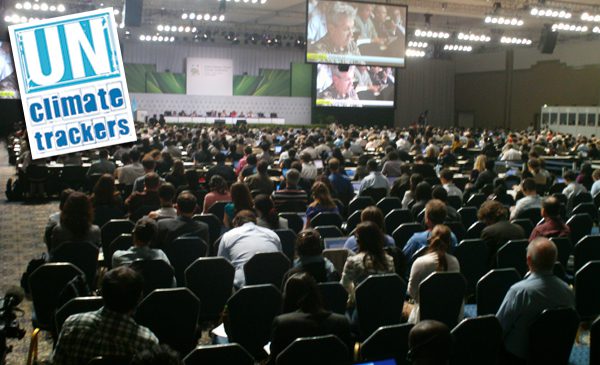It’s nearing the end of the third day in Cancun and tension lingers in the air. Several issues are coming to the surface that may block progress in the coming days. In the formal meetings and in the hallways everyone is talking about the Kyoto Protocol (the current climate agreement to reduce greenhouse gas emissions). The media has been making a lot about an announcement by Japan against the continuation of Kyoto protocol. However, it is not as bad as it seems.
The Kyoto Protocol is an international agreement that was created in 1997 and came into force in 2008. It requires certain developed countries (known as Annex 1) to reduce greenhouse gases, including carbon dioxide, by various amounts. In 2012 what is known as the first commitment period of the Kyoto Protocol (2008-2012) comes to a close. One of the key issues for the current climate negotiations, and those before them, is how to continue the Kyoto Protocol into a ‘second commitment period’. And this is where Japan’s announcement comes in.
During the opening of the negotiations on the subject of the Kyoto Protocol, Japan stated that it would not “inscribe its target under the Kyoto protocol on any conditions or under any circumstances”. This is the first announcement of this type in this negotiating session and it did put a bit of am dampener on the first couple of days. Whilst this announcement should be criticized for its lack of leadership and good faith it should not significantly hold up progress in Cancun.
Firstly, it has been known for some time that Japan holds this position. The announcement is as much about posturing in the negotiations as it is about substance. Japan remains committed to its 25 percent reduction target on 1990 levels by 2020 and is seeking to be accountable under a the new global agreement being discussed in Cancun and beyond. Secondly, with or without Japan, there are a number of countries including Australia, the EU and Norway that have clearly expressed their willingness to take on new pollution targets (all be they inadequate targets) under the Kyoto Protocol in the context of a global agreement. Thirdly, Japan will continue to be part Kyoto talks around future rules and is not expected to block a mandate from this meeting to continue Kyoto negotiations. And this is crucial, as the Kyoto Protocol is a crucial component of an effective global climate deal.
Despite posturing from countries like Japan, Cancun must include a mandate to continue negotiations towards a comprehensive and legally-binding outcome including in the Kyoto Protocol. Developing countries are anxious to see progress on a second commitment period of the Kyoto Protocol after the first period ends in 2012. Many development countries, whose people are most vulnerable to the impacts of climate change, will not accept a final agreement unless it includes the Kyoto Protocol as it includes important provisions such as adaptation assistance.
The Negotiations in Cancun need to agree a path towards a comprehensive, fair, ambitious and binding global deal which includes the Kyoto Protocol. Many obstacles lie ahead for these talks, but with effective and generous diplomacy they can be overcome.



